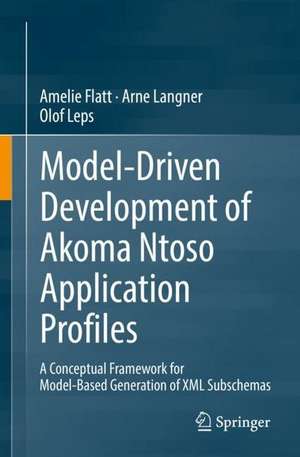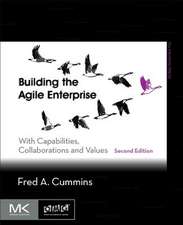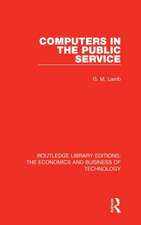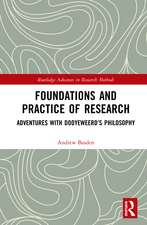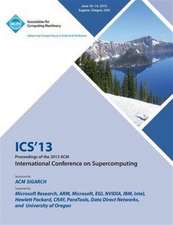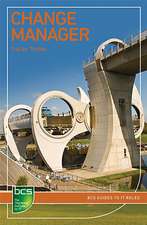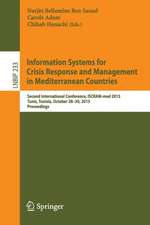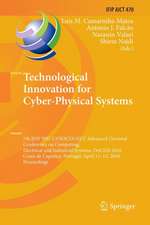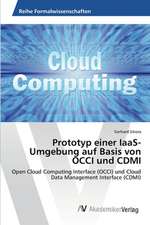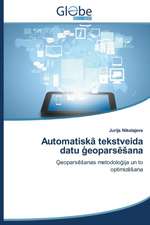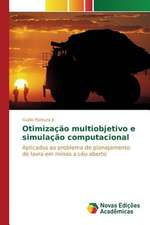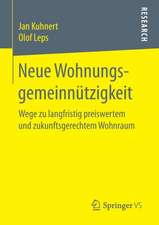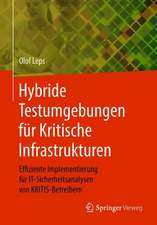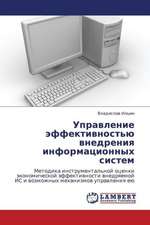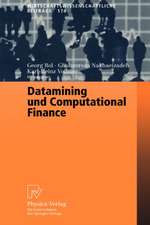Model-Driven Development of Akoma Ntoso Application Profiles: A Conceptual Framework for Model-Based Generation of XML Subschemas
Autor Amelie Flatt, Arne Langner, Olof Lepsen Limba Engleză Paperback – 2 ian 2023
The described model-driven development approach ensures consistent and error-proof application of AKN concepts and types, even when using different software tools. It allows for easy maintenance, is self-documenting, and facilitates stakeholder validation with nontechnical legal experts. The resulting application profile remains fully compliant to and compatible with AKN.
For the sake of illustration, the approach is paradigmatically applied to the German federal legislative process, as a corresponding approach was used in the creation of the German AKN application profile, LegalDocML.de. We discuss how the methodology yields a model, schema definition and specificationthat correspond to the artefacts created by LegalDocML.de, using examples from Germany.
The book is of interest to both legal and technical project teams on the cusp of introducing AKN in a legislative domain and intended as a practical guideline for teams preparing to create a custom application profile for their own domain. Furthermore, it can serve as both a resource and an inspiration for similar and yet to be developed methodologies in the public sector, the health sector or in defense, where international standardization and interoperability efforts are to be applied to a local level.
Preț: 292.54 lei
Preț vechi: 365.67 lei
-20% Nou
Puncte Express: 439
Preț estimativ în valută:
55.98€ • 58.09$ • 46.79£
55.98€ • 58.09$ • 46.79£
Carte tipărită la comandă
Livrare economică 17-31 martie
Preluare comenzi: 021 569.72.76
Specificații
ISBN-13: 9783031141317
ISBN-10: 3031141318
Pagini: 47
Ilustrații: XV, 47 p. 1 illus.
Dimensiuni: 155 x 235 mm
Greutate: 0.1 kg
Ediția:1st ed. 2022
Editura: Springer International Publishing
Colecția Springer
Locul publicării:Cham, Switzerland
ISBN-10: 3031141318
Pagini: 47
Ilustrații: XV, 47 p. 1 illus.
Dimensiuni: 155 x 235 mm
Greutate: 0.1 kg
Ediția:1st ed. 2022
Editura: Springer International Publishing
Colecția Springer
Locul publicării:Cham, Switzerland
Cuprins
1. Introduction.- 2. Model-Driven Development of AKN Application Profiles: Background and Requirements.- 3. Phase I: Mapping Legal Concepts to Technical Objects.- 4. Phase II: Formally Modeling the Domain and the Mapping.- 5. Phase III: Generating Artifacts from the Model.- 6. Outlook and Lessons Learned.
Notă biografică
Amelie Flatt completed her B.Sc. in Mathematics at the Karlsruhe Institute of Technology (KIT) and her M.Sc. in Mathematics at Freie Universität Berlin (FU Berlin). As a consultant she advised the German public administration on digitalization and standardization projects focusing on open data strategies and on XML-based data exchange standards. Since 2021 she works for Munich Re Group.
Arne Langner studied Political Science (B.A., University of Bremen) and International Political Economy (M.A., University of Warwick) and then worked as a political consultant in Berlin before following his life-long interest in IT and joining ]init[ AG to advise German public sector organisations on digital transformation projects. Here he has been instrumental in the design and implementation of XML-based data exchange standards for the Federal Ministry of the Interior, the Federal Office for Information Security, and the federal coordinating body for IT standards (KoSIT). As a system architect at Hoverture he complements his knowledge of governmental messaging infrastructure and parliamentary informatics with additional experience related to distributed infrastructure and cloud-based applications.
Olof Leps holds a LL.B. in European Law (Maastricht University), a M.A. in Public Policy and Management (Potsdam University) as well as a M.Sc. in Business Information Sciences (Potsdam University). As an IT consultant with a legal and IT management background, he has been advising government entities and companies in the public, private and health sector on IT and enterprise architecture management, requirements engineering, standardized data exchange and related technologies. He is the author of several articles and books on digitalization, public sector and e-government reforms.
Arne Langner studied Political Science (B.A., University of Bremen) and International Political Economy (M.A., University of Warwick) and then worked as a political consultant in Berlin before following his life-long interest in IT and joining ]init[ AG to advise German public sector organisations on digital transformation projects. Here he has been instrumental in the design and implementation of XML-based data exchange standards for the Federal Ministry of the Interior, the Federal Office for Information Security, and the federal coordinating body for IT standards (KoSIT). As a system architect at Hoverture he complements his knowledge of governmental messaging infrastructure and parliamentary informatics with additional experience related to distributed infrastructure and cloud-based applications.
Olof Leps holds a LL.B. in European Law (Maastricht University), a M.A. in Public Policy and Management (Potsdam University) as well as a M.Sc. in Business Information Sciences (Potsdam University). As an IT consultant with a legal and IT management background, he has been advising government entities and companies in the public, private and health sector on IT and enterprise architecture management, requirements engineering, standardized data exchange and related technologies. He is the author of several articles and books on digitalization, public sector and e-government reforms.
Textul de pe ultima copertă
This book presents a model-driven approach for creating a national application profile of the international legislative document standard Akoma Ntoso (AKN). AKN is an XML-based document standard that serves as the basis for modern machine-readable and fully digital legislative and judicial processes.
The described model-driven development approach ensures consistent and error-proof application of AKN concepts and types, even when using different software tools. It allows for easy maintenance, is self-documenting, and facilitates stakeholder validation with nontechnical legal experts. The resulting application profile remains fully compliant to and compatible with AKN.
For the sake of illustration, the approach is paradigmatically applied to the German federal legislative process, as a corresponding approach was used in the creation of the German AKN application profile, LegalDocML.de. We discuss how the methodology yields a model, schema definition and specificationthat correspond to the artefacts created by LegalDocML.de, using examples from Germany.
The book is of interest to both legal and technical project teams on the cusp of introducing AKN in a legislative domain and intended as a practical guideline for teams preparing to create a custom application profile for their own domain. Furthermore, it can serve as both a resource and an inspiration for similar and yet to be developed methodologies in the public sector, the health sector or in defense, where international standardization and interoperability efforts are to be applied to a local level.
The described model-driven development approach ensures consistent and error-proof application of AKN concepts and types, even when using different software tools. It allows for easy maintenance, is self-documenting, and facilitates stakeholder validation with nontechnical legal experts. The resulting application profile remains fully compliant to and compatible with AKN.
For the sake of illustration, the approach is paradigmatically applied to the German federal legislative process, as a corresponding approach was used in the creation of the German AKN application profile, LegalDocML.de. We discuss how the methodology yields a model, schema definition and specificationthat correspond to the artefacts created by LegalDocML.de, using examples from Germany.
The book is of interest to both legal and technical project teams on the cusp of introducing AKN in a legislative domain and intended as a practical guideline for teams preparing to create a custom application profile for their own domain. Furthermore, it can serve as both a resource and an inspiration for similar and yet to be developed methodologies in the public sector, the health sector or in defense, where international standardization and interoperability efforts are to be applied to a local level.
Caracteristici
Presents a model-driven approach for creating a national application profile of the international AKN standard Shows how to apply the approach for the creation of the German application profile LegalDocML.de of AKN Can serve as a blueprint for yet to be developed methodologies in the public sector, the health sector or in defense
